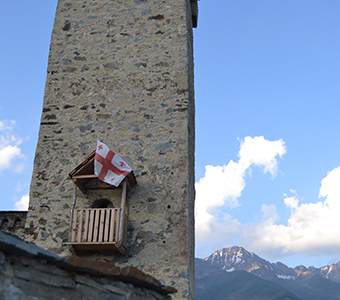City of Zagreb still playing with fire
Blog entry | 18 July, 2014Seasoned Bankwatch-watchers may recall our successful four-year campaign to stop the EBRD from financing a waste incinerator just outside Zagreb. Between 2005 and 2008, we supported Zelena akcija/Friends of the Earth Croatia and local group UZOR to prevent the City of Zagreb from building a huge 385 000 tonnes per year waste incinerator in Resnik on the outskirts of Croatia’s capital.
Read moreA Private Affair: Report shows how development finance institutions benefit the rich in Western countries
Blog entry | 11 July, 2014A new report shows how private western-based companies are benefiting from multilateral development banks’ support while governments and citizens in recipient countries are delegated to the sidelines.
Read moreCivil society recommendations for the European Investment Bank’s transparency policy
Publication | 1 July, 2014As the EIB prepares the review of its 2010 transparency policy, the signatories of this letter convey key positions and concerns regarding the policy and how we believe it needs to be amended.
Read moreMassive EU infrastructure priority projects lack mandatory environmental assessment
Press release | 26 June, 2014EU heads of state gathering today and tomorrow will discuss the European Energy Security Strategy promoting a number of massive infrastructure projects which include gas pipelines, LNG terminals and storage facilities even though their overall environmental impact has not been adequately assessed. Environmentalists are currently battling the European Commission over this issue in Court.
Read moreWill Georgia go green after EU association agreement?
Blog entry | 26 June, 2014On Friday Georgia will sign an association agreement with the European Union, meaning that our country will start cooperating more closely with the EU and even implement more European legislation. This is good news, particularly when it comes to the environment.
Read moreРуководство по Европейскому инструменту соседства и Международным финансовым организациям
Publication | 23 June, 2014В контексте обновленного подхода к Европейской политике соседства (ЕПС), очерченного в совместном коммюнике от 25 мая 2011 года, к 2014 году новый финансовый инструмент, а именно Европейский инструмент соседства (ЕИС), станет ключевым финансовым инструментом для 16 стран-партнеров к востоку и югу от границ ЕС (Алжир, Армения, Азербайджан, Беларусь, Египет, Грузия, Израиль, Иордания, Ливан, Ливия, Молдова, Марокко, Оккупированная Палестинская территория, Сирия, Тунис и Украина). В этом же коммюнике говорится о новом походе к расширенному внешнему мандату ЕИБ для восточных и южных соседей, а также расширении мандата ЕБРР на отдельные страны Средиземноморского региона.
Read moreNo public money for mega-gas pipeline projects – Projects of Common Interest for gas imports will be harmful
Publication | 12 June, 2014Projects aimed at increasing EU gas imports, included in the European Commission’s Projects of Common Interest (PCI) would surpass the five scenarios of the EC’s own Energy Roadmap 2050 which all foresee an overall decrease in gas imports. Additionally, they would support authoritarian regimes which repeatedly violate human rights and limit space for democratic expression.
Read moreNew mega gas pipelines redundant according to EU’s own projections
Press release | 12 June, 2014The EU’s plans for large new gas import pipelines and LNG terminals to Europe, outlined in the European Commission’s October 2013 list of priority energy projects as well as in the May blueprint for energy security to be discussed during tomorrow’s Energy Council, are not only counter to the EU’s long-term climate goals but also unjustified according to the EC’s own demand forecast.
Read moreGuidebook to the European Neighbourhood Instrument and the international financial institutions
Publication | 30 May, 2014The new European Neighbourhood Instrument (ENI), will be the key financial instrument for 16 partner countries to the East and South of the EU’s borders (Algeria, Armenia, Azerbaijan, Belarus, Egypt, Georgia, Israel, Jordan, Lebanon, Libya, Moldova, Morocco, Occupied Palestinian Territory, Syria, Tunisia and Ukraine). At the same time the new approach includes an increased external mandate for the EIB for both eastern and southern neighbours, as well as the extension of the EBRD mandate to selected southern Mediterranean countries.
Read moreNew online toolkit to help tackle the Kings of Coal in southeast Europe and Turkey
Blog entry | 5 May, 2014Coal investments are a dying breed in many countries, but some investors are still ready to try their luck in southeast Europe and Turkey. For campaigners who want to communicate with these actors Bankwatch has developed the user-friendly online toolkit Kings of Coal in three languages.
Read more


